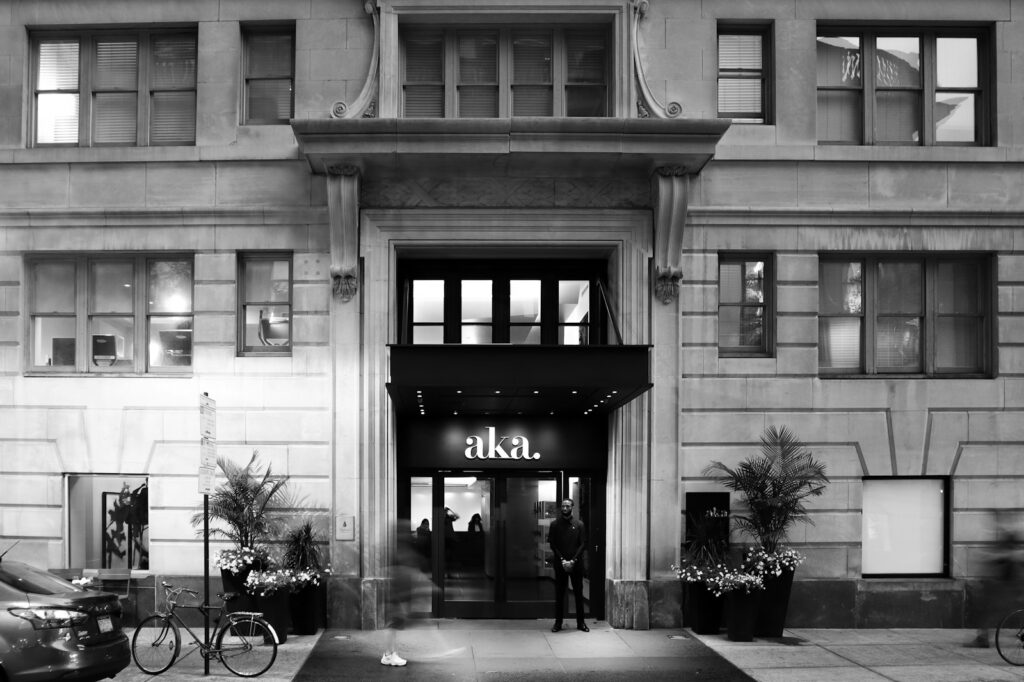Think of the doorman, or doorperson, stationed at the entrance of your hotel. When guests or visitors arrive, he leans forward and opens the door. With eyes in the back of his head (or so it seems, to those creeping out at dawn), he also eases passage for anyone who leaves the building.
Clearly, this business of opening doors for guests and visitors is ripe for automation: install two motion sensors and a rapid mechanism and, for a modest outlay, the hotel saves on people costs.
Would you, as an HR professional, fire the doorman? Would you stop your colleagues from throwing the man onto the street? I argue this: if HR does one thing in the coming months and years, it must be to ensure that this doorman retains his job.
Reasons to fire the doorman
Across the workplace, many colleagues see an ‘opportunity’ in firing the doorman. For the finance director, an automated system incurs only maintenance costs, lower than the man’s salary and benefits. The director of facilities sees a chance to reduce her headcount.
The chief technology officer loves the idea of AI-enabled door cameras that flash guests’s names on receptionists’ screens, the first step in his strategy to deliver a friction-free, ultimately human-free, check-in service.
The head of investor relations sees firing the doorman as a way to show owners that the executive team, mindful of operating expenses, is positioning the business for growth, unfettered by messy contractual obligations.
Finally, assured that his new mobile app will deliver a personalised product that international travellers demand, the head of customer service also believes the doorman can go.
Such views express beliefs about value. They are the norm in a business ecosystem that is geared toward profit and efficiency, where consumers call for convenience and low cost, and where technology is seen as the solution to all ills (including those it created).
Reasons to keep the doorman
In reality, the doorman’s job is not to open doors. Rather, he is a standard-bearer for the human experiences that hotel guests value. The doorman is in the relationships business; and connection now matters more than ever.
Advertising stalwart and vice-chairman of Ogilvy UK Rory Sutherland explains how paring activities to their functional core misses the point. The doorman keeps out undesirables, not with muscle but by guarding an invisible cultural line between the hotel and the world outside (my words).
The doorman greets regulars by name and asks about their day: he makes everyone feel recognised. His uniform and manners are symbolic of the hotel’s status and of the respect owed to guests. An emblem of ethos and practice, the doorman accounts for happy customers, sustainable rack rates, and repeat business.
HR’s duty to champion value
The powerful narratives on efficiency, profit, cost, convenience, and technology, when taken to extremes, reduce people to functions and value to material basics. Through such eyes, the doorman merely opens doors. But these eyes are blind to what matters.
Human resources teams themselves must embrace a duty to be standard-bearers for the spirit of the doorman. As workplaces and services are rationalised in the name of efficiency, as processes supplant relationships, as computers replace people, HR simply has to take a stand.
How HR can value the doorman
More than ever, the duty of HR is to champion experiences that make workplaces, products and services, and society good for people. HR is well-placed to make a difference: how can we make the most of this chance?
Build vibrant relationships
HR teams must have curiosity beyond the status quo, and yet be one of the boardroom’s insiders. Vibrant, productive relationships are the way to nurture the trust and credibility that make robust challenges possible.
Question cherished norms
We now know the trends that cause harm within society and across the workplace. When the first aim of an initiative is to secure profit, efficiency, convenience, or low cost, then risk will emerge. HR must relentlessly ask, ‘Beyond these four imperatives, what is the value created here?’
Think hard about technology
Technology has the capacity to bring rewards to society and to individuals. But many corporate initiatives today are geared toward efficiency and convenience, where human value is minimal. If the organisation must jump on the tech bandwagon, let it be for sound reasons.
Go beyond ‘either / or’ thinking
No one likes a killjoy. Rather than saying ‘No’, become known for imagining solutions that enable people, and which, as a by-product, generate other forms of value. The conversation is no longer how to ‘maximise efficiency’, but how to ‘create value for people in an overall enriching way’.
Make it personal, not personalised
Everyone struggles to make sense of the irrelevant data pumped hourly by the internet. Companies thus ‘personalise’ their interactions, a strategy that results in yet more data (often stolen from customers). To thrive, human beings need ‘personal’ experiences, not personalised data.
Investment in the doorman is a commitment to a society where people count; without this, we all suffer, whether we see it or not. If HR cannot retain the doorman, then who in the boardroom will? Further, if HR neglects to champion the value of people, then, really, what is the team doing?






